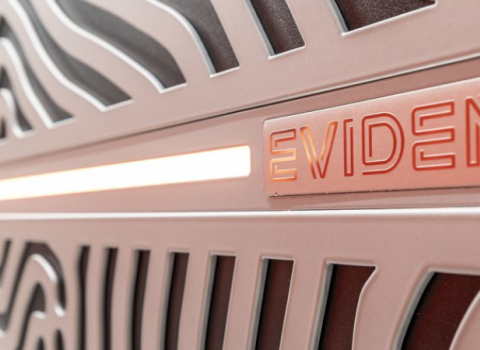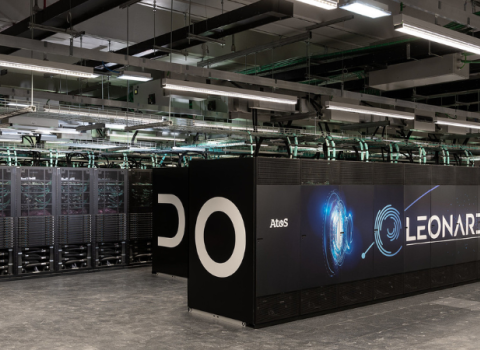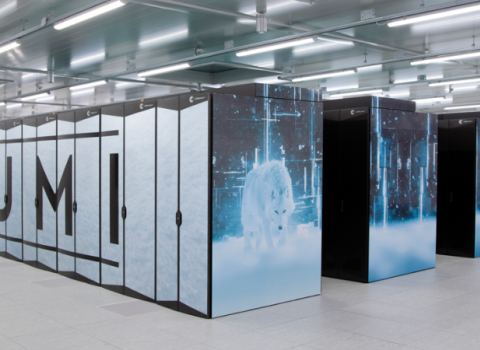
Jugene: up, running, and very fast. Image courtesy Jülich Research Centre.
Supercomputer users will benefit from dedicated subject-specific support in Jülich, promised Thomas Lippert, Director of the Jülich Supercomputing Centre. The 120 members of staff will not just ensure that Jugene is maintained and ready for use, they also provide information advice on all aspects of simulations and modelling.
The centre’s simulation laboratories have expertise in plasma physics, biology, earth system science and the nanosciences. “External groups can make use of our know-how […] and therefore conduct their calculations and research in a highly efficient manner,” explained Lippert.
Jugene is currently the most powerful computer of the Blue Gene/P series manufactured by IBM, with a measured performance (Rmax) of over 167 teraflops (trillion mathematical calculations per second). In the machine in Jülich, more than 65,000 processors operate in concert, connected through an extremely high capacity communications network.
Jugene is housed alongside its siblings Jump and Jubl. The Jülich supercomputers are currently used by around 200 European research groups. Scientists from all disciplines, from materials science and particle physics to medicine and environmental science, are allowed to request computing time, with an independent panel allocating time to the best projects.





 A unique international forum for public research organisations and companies to connect their external engagement with strategic interests around their R&D system.
A unique international forum for public research organisations and companies to connect their external engagement with strategic interests around their R&D system.